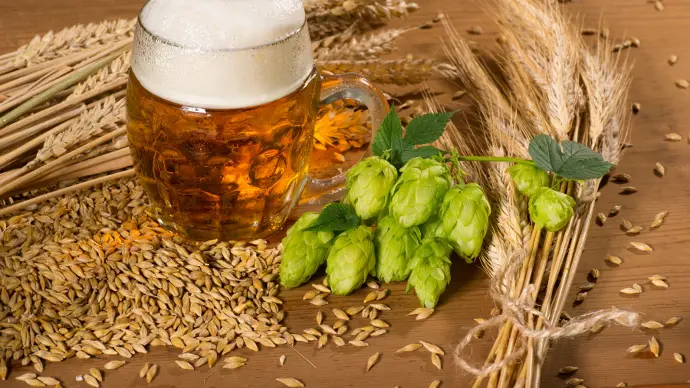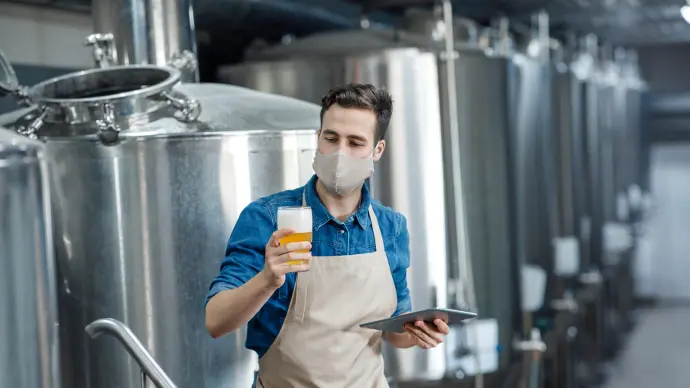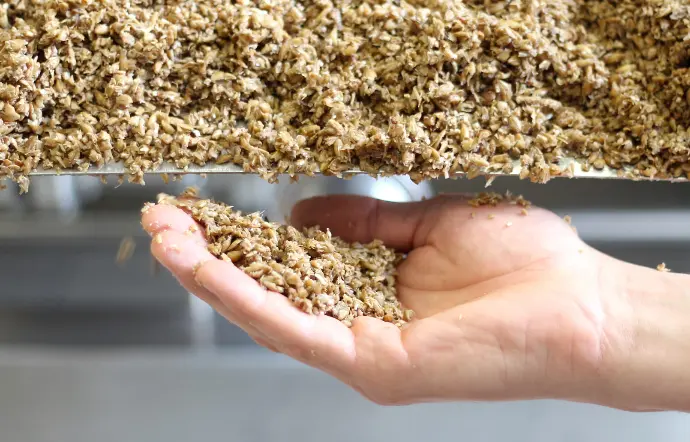Our vision for sustainable brewing
At Beer in Mind, we do not just produce beer; we want to revolutionise the way it is made. By involving students, alumni, researchers, and breweries, we are developing sustainable solutions tailored to all production volumes that benefit the entire brewing sector..
Every stage of the process, from sourcing to distribution, is designed to minimise ecological impact and maximise benefits for the planet and the breweries.
A commitment at every stage of production
Sustainability is at the heart of the Beer in Mind project. We firmly believe that it is possible to reduce the ecological impact of breweries while improving their efficiency and enhancing their by-products.
Here is how we act to integrate sustainability into every phase of beer production, from sourcing to delivery to the consumer.

Sustainable sourcing
Sustainability begins long before production. We prioritise :
- Local raw materials: Reducing the carbon footprint associated with transport and supporting local farmers.
- Responsible partnerships: Collaborating with partners who share an eco-responsible and sustainable vision.
- Eco-friendly packaging: Use of recycled or reusable materials for bottles, cans, and crates.

Eco-friendly production
The brewing phase is particularly energy-intensive. We are acting on several fronts:
- Process optimisation: Reduction of energy consumption by precisely controlling the duration and temperatures of key stages such as mashing and fermentation.
- Equipment efficiency: Adoption of modern technologies to minimise waste and maximise the yield of raw materials.
- Intelligent resource management: Reducing water consumption and recovering excess heat to power other production stages or to reinject into building heating.

Waste valorisation
Brewing waste can become valuable resources. Here’s how we could repurpose them based on the research projects that will be developed :
- Spent grains: Transformation into food flour, animal feed, mushroom substrate, organic compost, biomethane, biodegradable bioplastics, paper, packaging, agricultural amendment, etc...
- Spent hops: Extraction of bioactive compounds for the cosmetic or pharmaceutical industry, dietary supplements, aromatic extracts, organic fertilisers, etc....
- Yeasts: Use for producing dietary supplements or biodegradable bioplastics, cosmetics, bioethanol, probiotics, animal feed, biomass production, industrial enzymes, nutrients for cell culture, food flavours, bioremediation, organic fertilisers, etc...
- CO₂: Capture and reuse for beer carbonation, carbonation of other sparkling drinks, dry ice production, greenhouse crops fertilisation, conversion into biofuels, methanol production, polymer manufacturing, food preservation, supercritical extraction, industrial cooling, shielding gas for welding, production of algae for bioproducts, etc...
- Water: Treatment and reuse of wastewater to clean equipment and facilities or to reinject it into sanitation systems, etc...

Responsible delivery
We also integrate sustainability into the way our beers reach our customers :
- Short supply chain: Selling as locally as possible to minimise the carbon footprint of transportation.
- Optimised logistics: Consolidating deliveries to reduce the number of trips.
- Sustainable packaging: Using returnable or biodegradable packaging.